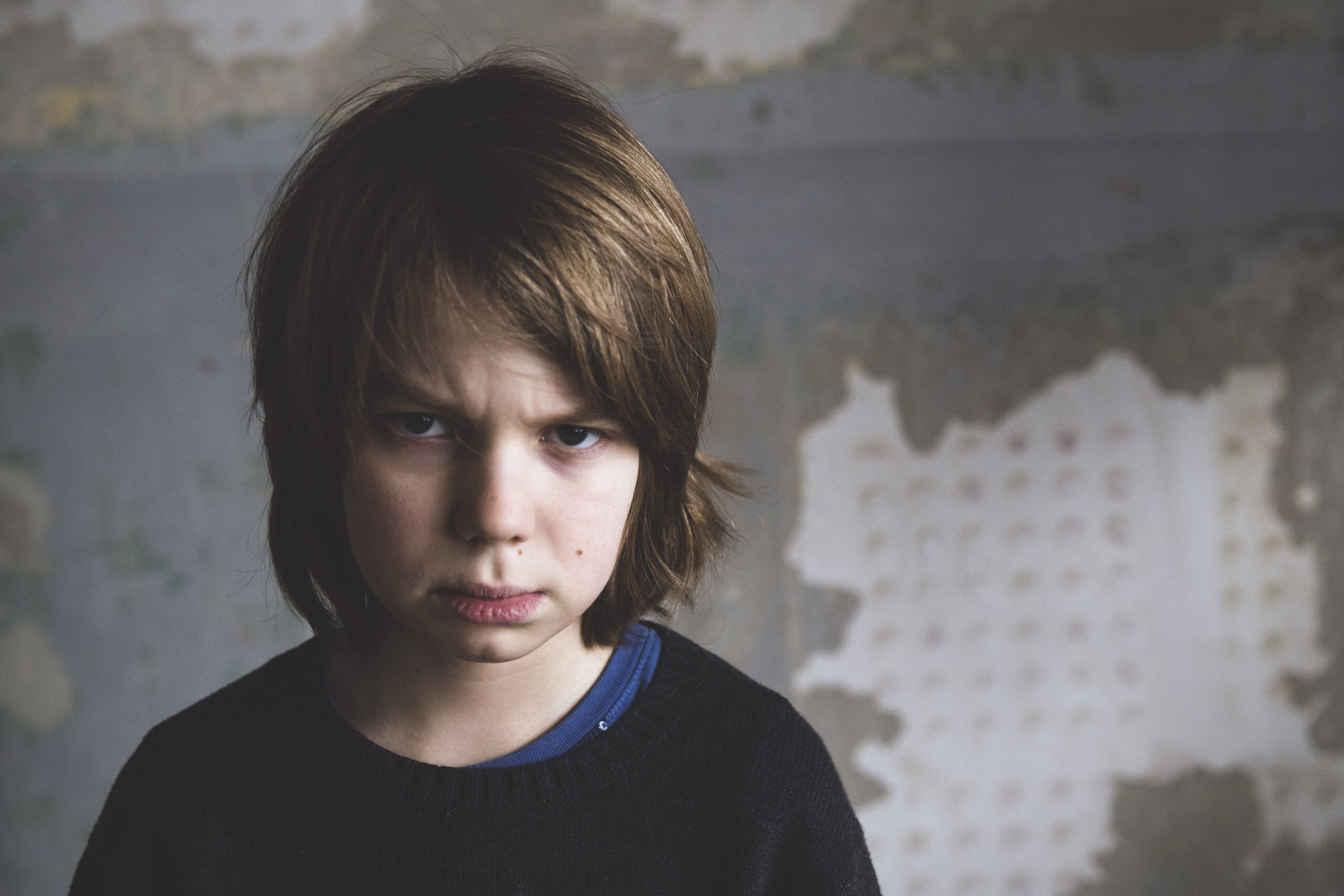My younger son had the best head of curly hair. Strangers would comment on it and no one could keep their hands off of it, including a little boy in his preschool class. My son came home one day in tears, saying, “I don’t like my curls. I want a short cut.” That’s all I had to go off of, so I replied, “What? Your hair is amazing!”
Another few weeks passed, and he finally told me about the boy pulling his hair on the playground. I felt terrible. This wasn’t just a matter of personal taste; he was being picked on. Preschool bullying is hard to work out because little kids don’t know what bullying is and can’t articulate their feelings. And to be frank, a lot of what looks like bullying is just kids learning what to do and not do in social settings. That’s why we have to be equipped as parents. Here are 5 ideas to handle preschool bullying with your child.
1. Understand what preschool bullying is.
Not all aggressive behavior is bullying. If my son’s experience had just been one or two incidents, I wouldn’t claim bullying. The fact that it was happening every time they were on the playground and that my son was asking him to stop is what pushed it over the line.
Bullying is intentional, repeated behavior that hinges on an imbalance of power. It can be verbal, physical, or social. Knowing the definition and actively listening to your child’s after-school recaps can help you recognize a problem.
2. Stay calm.
Little kids don’t want to see their parents get upset, even if it’s not directed at them, so try not to lose your cool when they tell you about something that happened at preschool. Tell your child you believe her and it’s important she keeps telling you when things happen. Remind her it’s OK to be upset because being picked on hurts in a lot of ways.
You probably need to contact the teacher, especially if your child has physical signs of bullying, like bruises. Tell the teacher what you know, and ask for her observations. Usually, there are two sides to the story, and even if your child is not aggravating the bully, it’s helpful to know details from an adult’s perspective.
3. Choose your words carefully.
The mama bear in all of us wants to lash out and say something unkind or presumptuous about the other child or her family. I remember telling a girl in my neighborhood that the reason another girl was picking on her was probably because she was dealing with her own insecurities—the whole “hurt people hurt people” thing. That might be true, but with preschoolers, it’s best to avoid making guesses as to why the child might be acting this way.
You don’t need your child going back to school saying, “My mom said the only reason you won’t play nice is that your parents don’t pay enough attention to you.” Stick to general comments like, “She needs help learning how to be kind,” or “I know this hurts. You don’t deserve it.”
4. Provide tools.
Unless you change schools (which you might want to consider), your child is going to have to face this child again. Give him language to use, especially if your child tends to hit or bite when he’s frustrated. Saying “leave me alone” or “that’s not nice” while standing tall and making eye contact can be a powerful tool.
Another great tool is to ignore the bully. Tell your child to walk away or not respond to the other child’s words. Let your kids role play and remind them that mimicking the bully is never an option.
5. Get your child involved in activities that build self-esteem and friendships.
Filling your kid’s tank with good relationships will make it easier for her to handle the difficult ones. If she has neighborhood friends she likes to play with, open the garage, pull out a lawn chair, and supervise as they run around. Put out snacks if it means keeping the fun going a little longer. Sherri Gordon, a bullying prevention advocate, teaches a confident kid isn’t as ripe of a target for a bully, so try enrolling your child in an activity she enjoys like dance, soccer, or music lessons to build self-confidence. And don’t hold back on the praise to help remind her she’s one in a million.
Filling your kid’s tank with good relationships will make it easier for her to handle the difficult ones. Click To TweetHave you encountered preschool bullying? How did you handle it?










